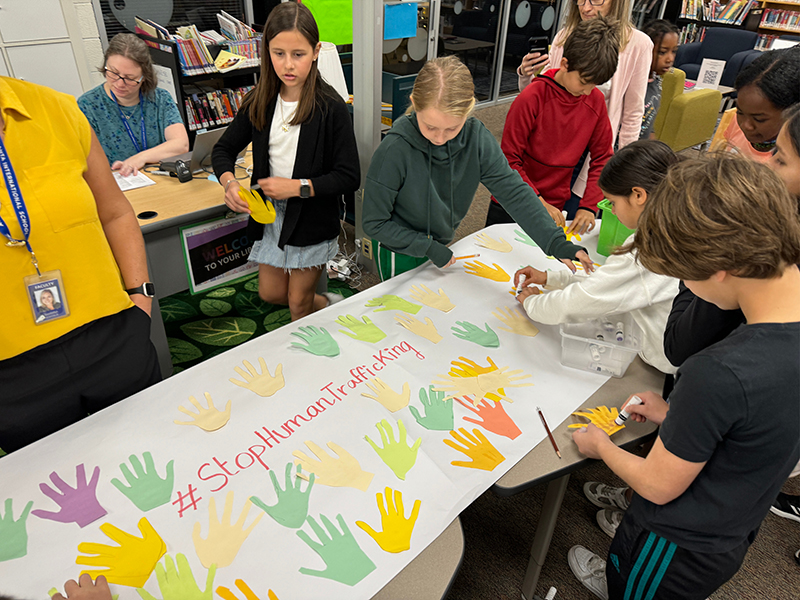
NGOCSTIP – Global coalitions are tackling human trafficking through coordinated operations and international partnerships. These collaborations aim to disrupt trafficking networks and protect vulnerable populations. By combining resources and expertise, nations strive to combat this grave violation of human rights.
In June 2024, Operation Global Chain brought together 40 countries, including Austria, Romania, and nations across Europe, Asia, Africa, and the Americas. Spearheaded by Frontex, in collaboration with INTERPOL and Europol, the operation targeted criminal networks involved in sexual exploitation, forced criminality, and forced begging. Over six days, authorities arrested 219 traffickers and rescued 1,374 victims, primarily women and children. The operation highlighted the effectiveness of international cooperation in dismantling trafficking networks.
The European Union has developed a four-year strategy to combat human trafficking. This strategy focuses on reducing demand, disrupting traffickers’ business models, protecting victims, and enhancing international cooperation. Between 2018 and 2023, EU member states conducted 4,690 investigations and made 5,555 arrests under the EMPACT framework. Notably, Operation Global Chain resulted in identifying 1,426 potential victims and arresting 212 suspects.
In October 2024, G7 interior ministers agreed to establish specialized police units to combat migrant trafficking. The plan emphasizes enhancing law enforcement capabilities and dismantling trafficking cartels. Italy’s Interior Minister, Matteo Piantedosi, highlighted the importance of cooperation with countries of origin and transit. This initiative underscores the priority of addressing migrant trafficking through collaborative efforts.
Pope Francis convened a summit in Rome to advocate for the protection of children from trafficking and exploitation. The summit emphasized the need for global initiatives to uphold children’s rights, especially in conflict zones. Queen Rania of Jordan highlighted the lack of enforcement of the U.N. Convention on the Rights of the Child, particularly in warzones. This event shed light on the importance of international advocacy in combating human trafficking.
Despite these efforts, challenges persist, particularly concerning funding. Recent U.S. funding cuts have severely affected organizations combating child abuse and human trafficking globally. These reductions have disrupted essential services, including victim support and law enforcement training, hindering progress in the fight against trafficking. Consequently, many programs struggle to operate effectively. Moreover, the lack of financial resources hampers the development of new initiatives aimed at prevention. Additionally, reduced funding affects international collaborations, limiting the sharing of best practices. As a result, the global community faces significant obstacles in addressing this complex issue. Therefore, sustained financial support is crucial to strengthen anti-trafficking efforts worldwide. Without adequate funding, the momentum gained in combating human trafficking may wane, leaving vulnerable populations at greater risk. Thus, addressing funding challenges is essential to ensure the continued success of anti-trafficking initiatives.
Global coalitions are tackling human trafficking by uniting resources and expertise to disrupt criminal networks and safeguard victims. In June 2024, Operation Global Chain involved 40 countries, resulting in 219 arrests and the rescue of 1,374 victims, primarily women and children. The European Union’s strategy from 2021 to 2025 focuses on reducing demand, disrupting traffickers’ operations, protecting victims, and enhancing international cooperation. Additionally, in October 2024, G7 interior ministers established specialized police units to combat migrant trafficking, emphasizing enhanced law enforcement and collaboration with countries of origin and transit. These coordinated efforts demonstrate a global commitment to combating human trafficking and protecting vulnerable populations.
